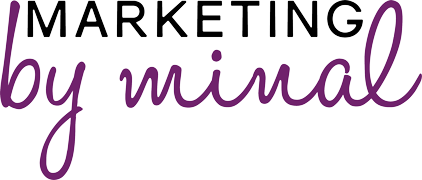Why sales objections matter and what to do to overcome them
One of the key parts of the sales process is to overcome any objections from your prospect. How do you feel when reading the statements below?
- You come away from a meeting thinking, I know there’s something holding them back but I can’t quite put my finger on it.
- That went really well, but they still said no, and I really don’t know why.
- They said I was too expensive, and I hear that all the time.
What exactly ARE sales objections?
They are questions that your prospect puts in the way of you closing the deal and doing business. Objections are a necessary and inevitable part of the selling process and you will need to overcome them to make your prospect confident that you can fulfil their requirements.
Before we talk about how to overcome sales objections, I have a piece of advice for you: listen to your prospects!
As a salesperson one of the greatest bits of advice I ever heard was that we have two ears and one mouth, meaning you’ll often gain far more insight to what motivates your prospects from listening than talking.
Only when your prospect airs an objection can you handle it. If an objection remains unaired then it will almost certainly sink you without you even realising it. This means that in addition to listening for objections if no objections are forthcoming you will need to actively elicit them.
If you come away from a meeting and you haven’t heard any sales objections, there may be a fundamental issue with the way you run your meetings. A meeting with no objections is like a skiing holiday without falling over – you’re not trying hard enough! We’ll come back to this shortly.
We have two ears and one mouth. Listening when trying to make a sale will give you greater insights as to what motivates your prospect. Click To TweetOvercoming sales objections
Right, let’s get to why you’re here and talk about how to overcome objections.
What are you hearing?
You need to make sure the objection you hear is what the prospect means. This is important because sometimes people will air an objection as a natural reaction to being sold something, and what they initially say and actually mean might not be the same thing. Refine what the objection really is by asking questions to make sure that you isolate a more precise meaning.
For example, you’re in a meeting with a prospect who tells you that your catering business is too small. What does this actually mean and where is this comment coming from? What do they expect from a larger firm that they don’t anticipate from your company?
Questioning the prospect further, you discover that a small firm once let them down (it could have been catering, it could easily have been something else) and their objection is less about size and more about trust.
You can then address this objection differently by telling them how long you have been trading and how some of your other clients have been with you for many years. If you fail to address the real motives behind the objection you will fail to allay their worries. Isolating objections is critical, otherwise, you run the risk of not responding to your prospect’s exact concern.
Asking questions helps you understand what's holding your prospect back from buying from you. Click To TweetCommon objections
Be ready for the obvious objections. If you typically hear that you’re too expensive or that your prospects like you but tend to delay, then have responses ready.
Let’s say you’re a marketing consultant. Your ready-rolled response to “too expensive” might be “I understand your concerns. A customer similar to you I work with has seen their leads increase by 30% in the year I’ve worked with them. They pay me X and have seen benefits of XXX, so they’ve seen 3x return on investment. How much is each lead worth to you?”
Bake objections into your presentation
One other way of handling the most common objections is to embed them into your presentation. Let’s say you deliver training courses but your prospects always seem to delay committing, you could include something like “better-trained staff are more productive immediately so the earlier you train your staff the sooner your firm receives the benefits”. This might not completely make the objection go away but it helps frame the argument.
Objections are good
Don’t be too aggressive when hearing objections. Remember, you want to encourage objections not inhibit them, so by welcoming questions (yes, even the odd silly one) you encourage your prospects to air their concerns; as stated earlier, if they don’t get the chance to do this you can’t overcome them. And if you respond too aggressively to an objection, even silly questions, then you risk inhibiting other objections being raised.
They didn’t have any objections!
What if you get no objections? If this is the case, then explicitly ask for them. One way to go about this, even with extremely guarded or quiet prospects is “You look like you were about to ask me a question” (then don’t talk until they say something). This will almost always elicit a response. It might be an objection and it might not, but you’ll get some feedback and thus a better understanding of where you stand.
Similarly, if you usually hear in your meetings that you’re too expensive but in one meeting DON’T hear this, then bring it up! By asking “What about cost?” you will elicit a response which will either be “Money is no object, this is not a problem” (ok, this is not very likely!) or “Yeah, you’re expensive and I’m not sure I can justify the cost” (far more likely). Either response is better than having nothing to work with; it’s far better to air important topics rather than leave them unasked.
No prospect objections doesn't mean they don't have any. Ask so they don't delay the sale! Click To TweetWhen should you handle objections?
Now you know how to overcome objections, let’s talk about when you handle them. Should you do it throughout a meeting as they arise, or should you handle them all at the end?
There’s no right or wrong answer to this and it usually depends on what makes for the best flow of meeting but if you do want to save some till the end then you need to:
a) make a point at the time that you’ve recognised the objection, write it down, thank your prospect for the question and
b) make time at the end to thoroughly answer the question.
Your prospect will not forget if you avoid answering and will rightly mark you down!
One advantage of saving objection handling to the end is that it provides a platform to move your prospects to the next stage of negotiation. Towards the end of your meeting, make sure you ask if there are any more questions, even if you’ve answered all those that have arisen.
You can then summarise with “Any more questions or concerns? No? If your major concerns are out of the way, what are the next steps/can we go ahead/what timescale”. If you’ve managed the objection process correctly then logically you’ve exhausted all the reasons your prospect has of not buying from you. Consequently, you’ve reached a binary point in your meeting and are nearer a final decision.
Understanding the concerns your prospects have and giving them answers to help them understand how you can help is a big part of the sales process. By knowing that they will come up and monitoring what you’re often asked, you’ll be ready to answer these objections and show your prospects that working with you is the right thing.
This is a guest post by Ian Little, who has over 20 years’ experience of B2B sales. He’s worked for small and big businesses. This is the second in a series of posts he will be writing to help any small B2B business understand how to prepare for and make a sale. ICYMI, the first post covered how to prepare for a meeting with a prospect.

